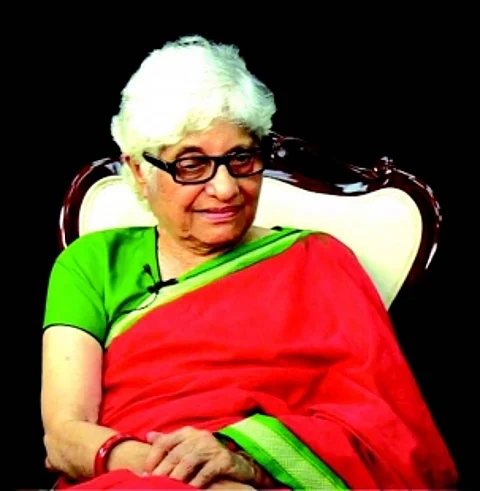

This is an intricate subject, researching on the process by which Prime Ministers arrive at their choices. These decisions hold the power to shape the destiny of the nation, impact citizens, stir controversy, or enhance bilateral trade relations with neighboring countries and the world at large. The weight of their decisions necessitates careful consideration, as they occupy the highest office in the land. Neerja Choudhury, a distinguished journalist, columnist, and political commentator, offers insights into the decision-making strategies of six former Prime Ministers of India in her book, ‘How the Prime Ministers Decide.’ Through this book, she examines select decisions made by these leaders, including Indira Gandhi, Rajiv Gandhi, V P Singh, P V Narasimha Rao, Atal Bihari Vajpayee, and Dr Manmohan Singh.
Neerja Choudhury served as the political editor of the Indian Express newspaper for a decade, during which she had the privilege of reporting on the tenures of eight different prime ministers and covering ten Lok Sabha elections. Her exceptional journalistic skills have earned her numerous prestigious accolades, including the inaugural Chameli Devi Jain Award for Outstanding Women Media persons in 1981, the India Today–PUCL Journalism for Human Rights Award in 1983, and the Prem Bhatia Award for Best Political Reporting in 2009–10. Currently, she holds the position of contributing editor at the Indian Express, and her weekly column, ‘The Neerja Chowdhury Column,’ enjoys a broad readership among those interested in contemporary Indian politics.
This book was born during the pandemic, and it has already undergone a reprint. The team at Aleph Publications, led by her publisher David Davidar, imposed a demanding timetable for its completion, a challenge she had to meet. She reflects, “The book would not have been finished as it is now without his support.” Her editorial crew collaborated closely with her to shape the book into a political thriller and a political drama rather than focusing solely on crafting elegant prose.
Neerja hopes to engage millennials with this book. Throughout her career, she diligently took handwritten notes during her conversations with politicians and bureaucrats. She meticulously documented everything, recognising that even if it wasn’t immediately relevant to her current story, it could potentially prove valuable in the future. Such is the depth of her journalistic and literary instincts. Her collection of notes is a cherished treasure to her.
During the pandemic, her life revolved around three essential elements: her computer, her bed, and the terrace, which served as a place for her to take walks and clear her mind when she wasn’t writing. Some of the key figures in this book had unfortunately passed away, prompting her to conduct additional interviews. This added a deeply practical and realistic dimension to the book.
She brought up the name of Indira Gandhi, who was once associated with the slogan ‘Indira is India.’ While there are numerous writings and articles discussing her role in creating the new nation of Bangladesh and the events during the late 1970s emergency period, Neerja chose to explore why, in 1977, she called for elections despite being in a strong position. At the time, the economy was thriving, there were no international sanctions, and she had a firm grip on power due to the emergency. Yet, she opted for an election, which she ultimately lost. Remarkably, she returned to power within just 33 months. As Neerja notes, “Very few world leaders have achieved such a feat, and it’s a truly captivating tale that sheds light on the intricacies of realpolitik.”
In this regard, Rajiv Gandhi demonstrated a forward-thinking and futuristic approach, initiating several measures aimed at propelling India into the 21st Century. This included the landmark Assam Accord with the All Assam Students Union and the grant of statehood to Goa in 1987. However, he struggled to effectively address the deep-seated issues related to caste and religion within the Indian psyche, as exemplified by the Shah Bano judgment case.
She shed light on significant decisions in this book, such as V P Singh's affirmative actions following the Mandal Commission report, Narasimha Rao's hesitancy regarding the Babri Masjid issue, Atal Bihari Vajpayee's nuclear test, and Dr Manmohan Singh's Indo-US Nuclear Deal. These pivotal moments in Indian politics have profoundly influenced India’s national identity for years to come.
Prime Ministers do not possess absolute freedom. Making crucial decisions is a unique and complex undertaking, quite distinct from what an average person might envision, Neerja remarks. She noted that it often comes down to a survival instinct because no Prime Minister ever starts with a clean slate, and it becomes particularly challenging when opposition parties are ready to pounce with their criticisms.